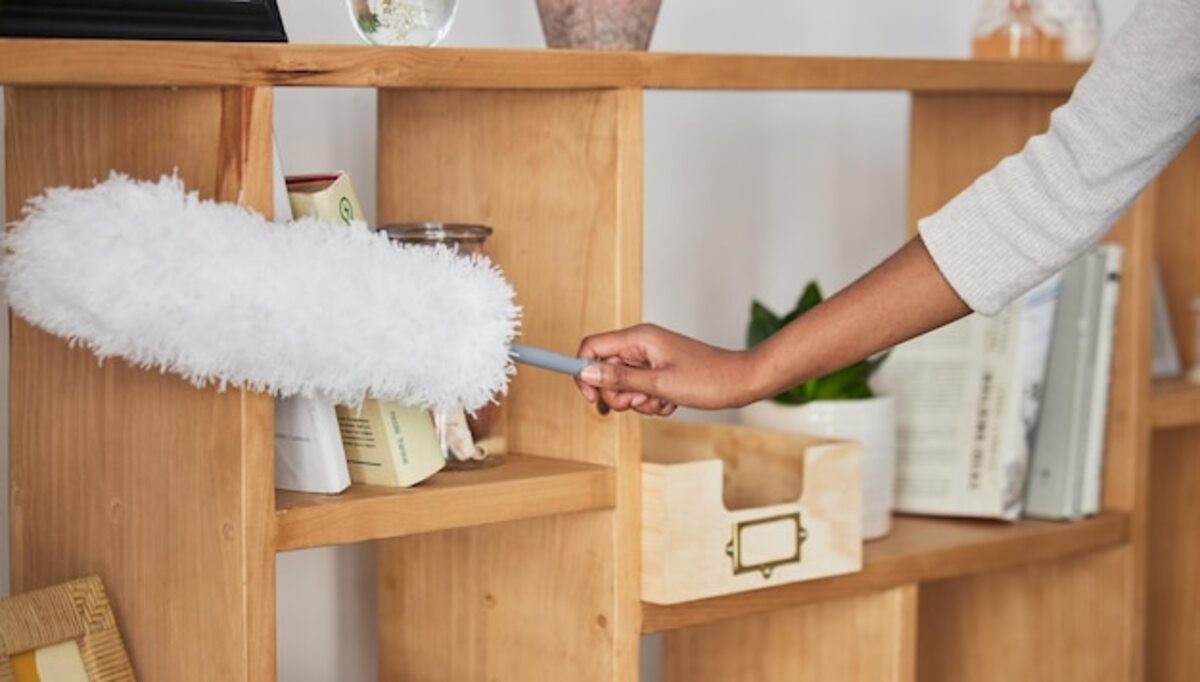Strategies for a constantly clean and organized home with no effort.

Can you imagine living in a home that is always clean and organized without having to spend hours cleaning? In this article, you will discover practical and effective strategies that will allow you to keep your space in perfect condition with minimal effort. From small daily habits to clever storage solutions, you will learn how to transform your house into a haven of order and freshness. Get ready to enjoy an impeccable home that reflects harmony and well-being!
1. Establish a daily routine: the power of small habits.
Establishing a daily routine is essential for maintaining a clean and organized home effortlessly. The key is to implement small habits that, although they may seem insignificant, have a significant impact in the long run. For example, spending just five minutes a day to make the bed or pick up misplaced items can prevent accumulated clutter. When these tasks become part of your daily routine, you will not only keep your space tidy, but you will also reduce the time you need to dedicate to deep cleaning.
Additionally, creating specific moments in your day to perform certain tasks can help you establish a consistent rhythm. You can set aside a few minutes in the morning to wash the dishes after breakfast or plan a quick surface cleaning before going to bed. These habits create a more pleasant environment and allow you to enjoy a cozy home without feeling overwhelmed by household responsibilities. Over time, these small changes will naturally integrate into your daily life, making it almost automatic and effortless to keep your home clean.
2. Organize by areas: how to divide your home for effective cleaning.
One of the keys to effective cleaning is to organize your home by zones. By dividing your space into specific areas, you can approach cleaning in a more systematic and less overwhelming way. For example, you can classify your rooms into zones like the kitchen, the living room, the bedrooms, and the bathrooms. Then, assign a day of the week or a specific time to focus on each zone. This will not only help you keep every corner tidy, but it will also allow you to see tangible progress without feeling overwhelmed by the magnitude of the task.
By organizing your home by zones, you can implement storage and organization strategies tailored to the specific needs of each area. For example, in the kitchen, you might use labeled containers to keep ingredients and utensils organized, while in the living room, you could opt for furniture with hidden storage to reduce visual clutter. This customization not only optimizes the available space but also makes each zone more functional and accessible. With this methodology, you will not only keep your home clean for longer, but you will also create an environment that invites enjoyment and relaxation without unnecessary distractions.
3. The "everything has its place" method: maximizes the available space.
The method of "everything has its place" is a fundamental strategy for maximizing the available space in your home. This approach is based on the premise that each object should have a designated spot, which not only helps maintain order but also makes cleaning easier. By assigning a specific place to each item, you reduce the time spent searching for lost objects and prevent the accumulation of clutter. Additionally, knowing exactly where each element goes increases the likelihood that you will put it away correctly after use, thereby promoting lasting organizational habits. Implementing this method is simple and can start with small changes. For example, you can dedicate a day to organizing your closets or drawers, ensuring that you group similar items and label containers if necessary. The key is to be mindful of space usage: utilize verticality with tall shelves and take advantage of difficult corners with solutions like corner shelves or stackable baskets. With a little initial dedication and a proactive mindset towards efficient storage, you can transform any area of your home into a harmonious environment where everything is within reach and always in its place.
4. The one-minute rule: quick tasks that make a difference.
The one-minute rule is a simple yet powerful technique that helps you keep your home in order with minimal effort. The idea is to spend just one minute on quick tasks that, although they may seem insignificant, have a big impact on the cleanliness and organization of your space. For example, if you find a cup on the table, instead of leaving it there for later, take the time to bring it to the sink. This small action not only prevents clutter from accumulating but also establishes a habit of personal responsibility towards your environment.
Implementing the one-minute rule can revolutionize your daily routine. Think of other quick activities like putting away jackets when you get home or making the bed right after you get up. In a matter of seconds, you can transform a messy room into a cozy and harmonious space. By turning these small actions into part of your daily life, you'll notice how significantly the time spent on deep cleaning reduces, allowing you to enjoy your home more and stress less about accumulated clutter.
5. Use baskets and organizers: essential allies for order.
Baskets and organizers are essential tools for keeping order in any home. Their versatility allows for grouping similar objects, which not only makes locating them easier but also helps to avoid visual clutter. From large baskets for dirty laundry to small organizing boxes for everyday accessories, each of these items can be used strategically in different spaces of your home. By designating a specific place for everything, you can reduce the amount of time you spend cleaning and organizing, allowing your house to remain in an optimal state with minimal effort.
Additionally, baskets and organizers can be an excellent way to add style to your decor. There are multiple options available in terms of materials, colors, and designs, which means you can find those that perfectly match the aesthetic of your home. By choosing attractive storage solutions, you will transform the act of organizing into an integral part of the decoration of your spaces. With a few creative touches, you can maximize functionality without sacrificing style; thus, your areas will remain clean and visually pleasing at the same time. Incorporating these essential allies will allow you to enjoy a more pleasant and stress-free environment.
6. Get rid of the clutter: guidelines to keep only what is necessary.
Getting rid of clutter is one of the fundamental keys to maintaining a clean and organized home. To achieve this, start by evaluating each room and selecting only those items that you actually use or that have significant sentimental value. Ask yourself if each item has a purpose in your daily life; if the answer is no, consider donating, recycling, or discarding it. Establishing this practice will help you not only reduce the volume of your belongings but also create a more harmonious environment that invites calm and mental clarity.
Once you have reduced your belongings, establish a system to maintain order. Spend a few minutes each day reviewing common areas like the living room or the kitchen, ensuring that each item has its designated place. Implement the “one in, one out” rule: every time you acquire something new, get rid of a similar item. This simple strategy will prevent clutter from accumulating again and allow you to enjoy a minimalist and organized home without additional effort. Remember that less is more; by focusing on what is essential, you can transform your space into a refuge where every element counts and contributes to your well-being.
7. Efficient cleaning: techniques to make it faster and easier.
Efficient cleaning is not just about spending less time on household tasks, but doing it with strategies that maximize impact in the least amount of time possible. A fundamental technique is the "clean as you go" rule. This involves combining daily activities with cleaning: for example, while waiting for the water to boil for cooking, you can quickly wipe down the countertop or pick up out-of-place items. In this way, you integrate cleaning into your routine without feeling that it interferes with your daily activities. Additionally, setting up a weekly schedule that divides tasks by days can help you avoid accumulation and maintain order effortlessly. Another effective technique is to use multipurpose products and appropriate tools that optimize your time. For example, a good multipurpose cleaner can save valuable minutes by eliminating the need to switch between different products for each surface. Likewise, investing in tools like microfiber mops or quick vacuums can work wonders by reducing physical effort and ensuring a deeper clean in less time. Finally, remember to regularly declutter; fewer items mean less dust and dirt buildup, which will make each cleaning session quicker and more efficient.
Also remember to create a specific space for each item in your home; proper organization will allow you to find what you need quickly and will prevent the frustration of searching for lost things while cleaning. Implementing these techniques will not only speed up your household tasks but will also transform the perception of home maintenance into a much more manageable and less tedious activity.
8. Involve the whole family: creating a collaborative environment.
Involving the whole family in household chores is one of the most effective strategies for creating a collaborative environment that facilitates the maintenance of a clean and organized space. By assigning specific responsibilities to each member, not only are the workloads distributed, but a sense of belonging and commitment to the home is also fostered. From the youngest to the adults, everyone can contribute with tasks adapted to their age and abilities, thus creating a system where everyone works together towards a common goal: the harmony of the home.
Establishing family routines for cleaning can turn a potentially tedious task into a fun and enjoyable activity. For example, designating a "family cleaning day" or having small daily sessions where everyone participates in activities like organizing toys or cleaning common spaces can make these chores less overwhelming. Incorporating music or games during these moments not only makes the task more enjoyable but also strengthens family bonds by working together to create a welcoming and orderly environment. With this collaborative approach, keeping your home clean becomes a shared experience that everyone enjoys.
9. Stay motivated: how to turn cleaning into a pleasurable habit.
Maintaining motivation is key to turning cleaning into a pleasurable habit, and one of the best ways to achieve this is to associate the activity with enjoyable moments. For example, you can play your favorite music or an interesting podcast while you clean; this will not only make the time pass faster but will also transform the task into an enjoyable experience. Additionally, setting rewards for completing certain tasks can be a powerful incentive. A short break with your favorite drink or enjoying an episode of your favorite series after cleaning can make each session feel less like an obligation and more like an act of self-care.
Another effective strategy is to divide tasks into small daily goals. Instead of tackling the entire house cleaning in one day, set simple objectives: for example, dedicate 10 minutes to organizing a specific room or cleaning just the kitchen. This approach not only reduces the mental burden associated with cleaning but also allows you to see tangible progress quickly. Over time, these small actions will become ingrained habits, and you will feel proud to see how your home remains tidy without excessive effort. Ultimately, remembering that cleaning is not just a task but a way to care for the space where you live and promote your personal well-being can make all the difference in your daily motivation.



